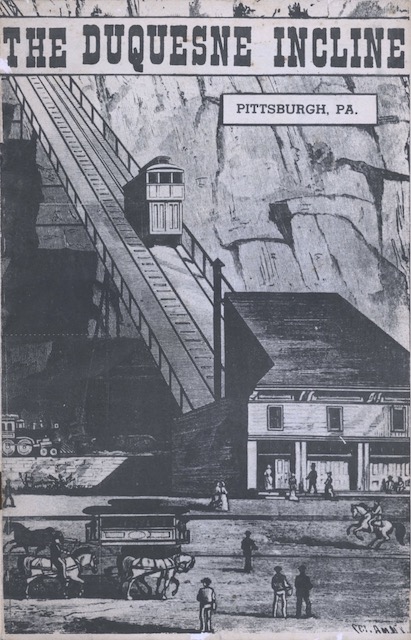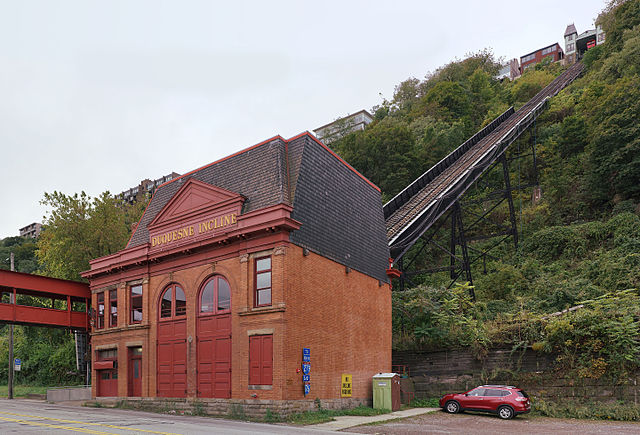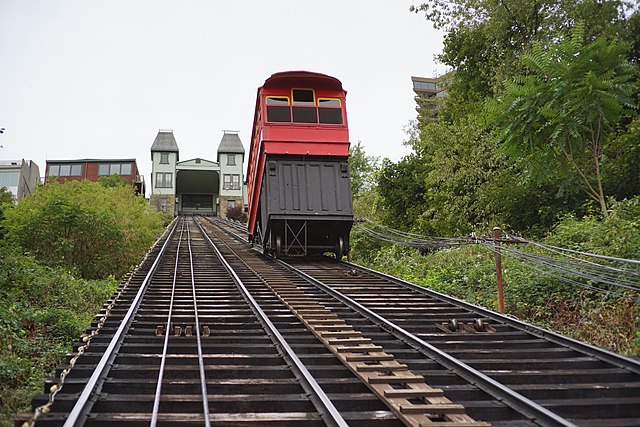This booklet pertains more to urban transit than to intercity passenger trains, but someone gave it to me with some other items, so I’ll include it here. Pittsburgh once had at least 17 different inclined planes — railcars that went up and down steep hills, usually drawn by a cable — but by 1960 only two of them were left.
 Click image to download a 1.9-MB PDF of this 8-page booklet.
Click image to download a 1.9-MB PDF of this 8-page booklet.
The Duquesne Incline was built in 1877 and went up and down a 58 percent grade, rising 400 feet in a 793-foot trip. Two different cars counterbalanced each other on two tracks, allowing first steam and later two 50-horsepower electric motors to easily move the cable pulling the cars up and down the hill. The cars were on 5-foot gauge tracks and each car had wooden bench seats for about 24 people.
 The Duquesne Incline; photo by Dllu.
The Duquesne Incline; photo by Dllu.
In November 1962, the private owners of the incline shut it down, saying that revenues were insufficient to cover the cost of replacing worn-out cables and other infrastructure. Local residents raised $15,000 (about $110,000 in today’s money) to pay for the repairs and the incline reopened in July 1963. The Port of Allegheny County bought the incline and leased it to the non-profit Society for the Preservation of the Duquesne Heights Incline for $1 a year. At the time this booklet was issued, probably around 1965, the society was raising money to buy the land on which the incline operated.
 Going up! Photo by Dllu.
Going up! Photo by Dllu.
The incline continues to operate today. Its infrastructure is probably in better condition that some of Pittsburgh’s roadway bridges, one of which recently collapsed, probably due to poor maintenance.
The Society for the Preservation of the Duquesne Heights Incline, which published this booklet, still exists and still operates the incline. It reported more than $1.3 million in fare revenues in 2019, supplemented by some investment income and less than $5,000 in donations.
The other surviving Pittsburgh cable railroad is called the Monongahela Incline. Both a little older and a little steeper than the Duquesne Incline, it is also owned by the Port of Allegheny County, which operates it itself rather than leasing it to a non-profit group.
